The Port of Baku Facilitates Trans-Eurasian Commerce (Part 2) 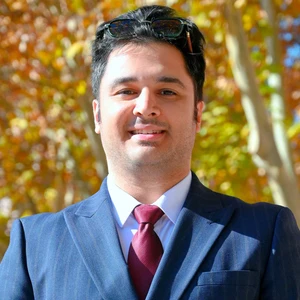 By Vusal GULIYEV, Policy Advisor at the Center of Analysis of International Relations and Head of Shanghai Office at AZEGLOB Consulting Group By Vusal GULIYEV, Policy Advisor at the Center of Analysis of International Relations and Head of Shanghai Office at AZEGLOB Consulting Group
Azerbaijan is embarking on ambitious reforms and collaborations within its transport and logistics sector, driven by the opportunities presented by the Middle Corridor trade route. Initiatives such as the integration of Azerbaijan’s railway and port systems and the establishment of international partnerships signal a push toward greater efficiency and connectivity in trade infrastructure. On April 25, Azerbaijani Foreign Minister Jeyhun Bayramov, during a press conference with Kaja Kallas, EU High Representative for Foreign Affairs and Security Policy, stated that work is underway to increase the cargo capacity at the Port of Baku from 15 million tons to 25 million tons. Efforts such this underscore Baku’s vision of transforming the country into a critical node of global trade routes, reinforcing regional connectivity and contributing to economic diversification READ MORE
The Port of Baku Facilitates Trans-Eurasian Commerce  By Vusal GULIYEV, Policy Advisor at the Center of Analysis of International Relations and Head of Shanghai Office at AZEGLOB Consulting Group By Vusal GULIYEV, Policy Advisor at the Center of Analysis of International Relations and Head of Shanghai Office at AZEGLOB Consulting Group
In December 2024, Azerbaijani President Ilham Aliyev authorized a $12 million investment into the Port of Baku to initiate the second phase of its expansion. This phase aims to increase the port’s annual cargo capacity from 15 million to 25 million tons. The region’s ongoing geopolitical instability, largely due to Russia’s full-scale invasion of Ukraine and the ensuing Western sanctions, has disrupted its established trade routes. These geopolitical upheavals underline the importance of Azerbaijan’s position between Europe and Asia as a transit state via the Port of Baku. Azerbaijan’s flagship port is capitalizing on its strategic location along the Silk Road to become a key hub for east–west connectivity. READ MORE
Growing Footprint of the Turkish Capital in China  By Vusal GULIYEV, Policy Advisor at the Center of Analysis of International Relations and Head of Shanghai Office at AZEGLOB Consulting Group By Vusal GULIYEV, Policy Advisor at the Center of Analysis of International Relations and Head of Shanghai Office at AZEGLOB Consulting Group
Over the past three decades, Turkish investment in China has steadily expanded, covering sectors such as energy, manufacturing, retail, and food. Despite certain market challenges, companies like Aksa and TAB Gıda have found scalable success. Backed by institutional frameworks, Türkiye’s strategic pivot to Asia continues to strengthen and diversify its economic relationship with China’s vast and growing market.
Economic relations between Türkiye and China have expanded considerably over the past three decades, evolving beyond trade to encompass mutual investment. While Chinese investments in Türkiye have typically drawn more attention, Turkish capital flowing into China has also steadily increased. Although Turkish investments remain less diversified and extensive than their Chinese counterparts, several Turkish companies have made notable contributions across multiple sectors. Nevertheless, China’s vast consumer base and industrial ecosystem have long been seen as a strategic target for Turkish businesses seeking to enhance their global reach. READ MORE
Azerbaijan’s Contribution to Regional Connectivity  By Vusal GULIYEV, Head of Shanghai Office at AZEGLOB Consulting Group and Policy Expert at the Baku-based Topchubashov Center By Vusal GULIYEV, Head of Shanghai Office at AZEGLOB Consulting Group and Policy Expert at the Baku-based Topchubashov Center
Azerbaijan is transforming into a key regional hub through strategic investments in transportation infrastructure, particularly along the Middle Corridor. Expanding rail, maritime, and digital connectivity, the country enhances trade between Europe and Asia. Projects like the Baku-Tbilisi-Kars railway and Port of Baku solidify Azerbaijan’s role in global logistics and economic diversification.
Azerbaijan’s focus on improving transportation infrastructure has been central to its role in enhancing regional connectivity, especially in the broader context of linking Europe and Asia. As part of the effort to revive the historic Silk Road, significant progress has been made in expanding trade and transportation networks—particularly rail and maritime routes that facilitate intercontinental trade along the east-west corridor. This expansion is a critical aspect of Baku’s long-term socio-economic growth strategy. Azerbaijan has consistently prioritized unlocking the trade potential of the Trans-Caspian routes, investing in advanced logistics and transportation infrastructure, including rail lines, highways, and seaports, supported by both domestic and international development initiatives. READ MORE
- February 22, 2025 22:53PM
Turkish - Chinese Rapprochement: Growing Chinese Investment in Türkiye  By Vusal GULIYEV, Head of Shanghai Office at AZEGLOB Consulting Group and Policy Expert at the Baku-based Topchubashov Center By Vusal GULIYEV, Head of Shanghai Office at AZEGLOB Consulting Group and Policy Expert at the Baku-based Topchubashov Center
Although Turkish - Chinese diplomatic relations periodically capture the global agenda due to their fragile aspects, examining the dynamics of economic relations in recent years reveals a different picture. While official Turkish - Chinese relations have been ongoing since 1971, the intensification of mutual economic cooperation dates back to the 2010s. Particularly, with the implementation of China’s Belt and Road Initiative (BRI), which encompasses 140 countries including Türkiye, the number of joint economic collaborations within the framework of international projects between the two countries has increased. Thanks to joint commercial projects carried out in recent years, China has become one of Türkiye’s largest investors and creditors. Chinese multinational companies continue to rapidly invest across various sectors of the Turkish economy. This article systematically analyses the commercial interests and investments of China, which has become one of the world’s largest investors and creditors, in Türkiye, considering the political-economic factors shaping Turkish - Chinese economic relations. READ MORE
Uzbekistan’s bold steps towards WTO membership  Qodir Djuraev, Qodir Djuraev,
Vice Chairman, Committee for International Affairs and Inter-parliamentary Relations, Legislative Chamber of Oliy Majlis of the Republic of Uzbekistan
The World Trade Organization (WTO) is the world’s largest and most influential trade and economic organization, renowned for its capacity to provide a comprehensive legal system for international trade. Critical documents enacted by the organization place responsibility on member states to conduct trade policy according to commonly agreed criteria. The aim is to help producers, exporters, and importers of goods and services operate successfully in the global market. READ MORE
Azerbaijan invites business to help reconstruct Nagorno-Karabakh
 By Fuad Shahbazov, Baku-based independent regional security and defence analyst By Fuad Shahbazov, Baku-based independent regional security and defence analyst
Since its victory in the Second Karabakh War with Armenia in 2020, the Azerbaijani government has begun a massive reconstruction of the former war-torn region. Azerbaijan has demonstrated a firm commitment to reconstructing Nagorno-Karabakh, which was largely neglected and left unattended for three decades. According to the Azerbaijani state media, between 2020 and 2023, the authorities have allocated AZN12 billion to Karabakh's reconstruction/rebuilding process and an additional AZN4 billion AZN in 2024. Overall, the state programme dubbed “Great Return” envisions the allocation of AZN30.5 billion from the state budget between 2022 and 2026. Considering the fact that the reconstruction is a lengthy and costly process, at the first stage, Azerbaijan prioritized the reconstruction of larger urban areas such as Aghdam, Lachin, Shusha, Fuzuli, and Zangilan in order to initiate the steady return of former Azerbaijani IDPs, making those areas economically attractive for potential local and foreign investors. READ MORE
Assessment of Child Poverty in the Republic of Uzbekistan  Center for Economic Research and Reforms (CERR), together with UNICEF, assessed the level of monetary child poverty in Uzbekistan. The study analyzed the impact of the social protection system on the poverty level. According to the calculations, in the absence of social payments, the child poverty rate in the country would have increased by 1.6 times. Center for Economic Research and Reforms (CERR), together with UNICEF, assessed the level of monetary child poverty in Uzbekistan. The study analyzed the impact of the social protection system on the poverty level. According to the calculations, in the absence of social payments, the child poverty rate in the country would have increased by 1.6 times.
April 1, 2024. The Center for Economic Research and Reforms (CERR), together with the United Nations Children's Fund (UNICEF) in Uzbekistan, conducted an assessment of the level of poverty among the child population, as well as an analysis of the effectiveness of the social protection system.
READ MORE
MIIT: In Uzbekistan, the implementation of 7,656 projects with a total value of $11.6 billion is planned in 2024  One of the key principles of Uzbekistan's economic growth is the widespread and parallel regional development, based on a deep analysis of the socio-economic situation of the country’s regions, including the study of resource base, production, transport-logistics potential, and demand for various high-value-added products. One of the key principles of Uzbekistan's economic growth is the widespread and parallel regional development, based on a deep analysis of the socio-economic situation of the country’s regions, including the study of resource base, production, transport-logistics potential, and demand for various high-value-added products.
According to the Ministry of Investment, Industry and Trade, based on the analysis results, regional investment programs (RIP) are formed annually and approved by the Government Commission, implemented with the coordination and support of the Ministry of Investment, Industry, and Trade of the Republic of Uzbekistan. Considering the identification of new opportunities, the list of projects expands throughout the year.
READ MORE
- February 27, 2024 13:00PM
Assessment of poverty indicators in the Republic of Uzbekistan by the end of 2023  The CERR jointly with the Statistics Agency, assessed the level of monetary poverty in Uzbekistan. By the end of 2023, poverty in the country decreased by 3.1 percentage points. The experts explained how the poverty profile has changed and in which regions the incomes of the population have shown the greatest growth.
The CERR jointly with the Statistics Agency, assessed the level of monetary poverty in Uzbekistan. By the end of 2023, poverty in the country decreased by 3.1 percentage points. The experts explained how the poverty profile has changed and in which regions the incomes of the population have shown the greatest growth.
According to the results of the assessment of the Statistics Agency under the President of Uzbekistan, by the end of 2023, the poverty level in Uzbekistan has decreased to 11.0%.
READ MORE
How Russian Migration Fuels Armenia’s IT Sector Growth  By Benyamin POGHOSYAN, PhD, Chairman, Center for Political and Economic Strategic Studies By Benyamin POGHOSYAN, PhD, Chairman, Center for Political and Economic Strategic Studies
The Russian invasion of Ukraine has led to a significant influx of Russian IT specialists into Armenia, boosting the sector and contributing to the country's economic recovery.
The growth of IT has become a synonym for Armenia’s development in the last decades. Given that the country has had a rather strong position in the IT sector since the collapse of the Soviet Union, it appears to be natural to observe the industry flourishing. In the 2000s, the primary agents of change were the branches of multinational companies, such as Synopsys Armenia and others. In recent years, the focus has shifted towards establishing a vibrant and thriving start-up ecosystem. Not even the economic slowdown in 2014-2016, the political upheavals of 2018, the Covid-19 Pandemic, and the 2020 war in Nagorno Karabakh did stop the growth of the IT sector in Armenia.
READ MORE
- November 28, 2023 07:35AM
The Rising Significance of the Middle Corridor 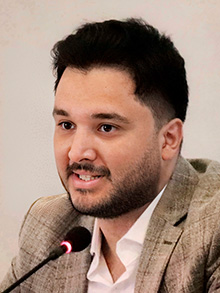 By Vusal GULIYEV, Visiting Research Fellow at the Asian Studies Center of Boğaziçi University By Vusal GULIYEV, Visiting Research Fellow at the Asian Studies Center of Boğaziçi University
The Russo‑Ukrainian war has affected global container traffic flows more profoundly than any other recent crisis. A series of West‑led sanctions and export restrictions imposed on Moscow has forced logistics companies to avoid shipping consignments via Russia’s Northern Corridor. At the same time, the disruption of operations through the Trans‑Siberian transit line has opened up new avenues for wide‑ranging cooperation along the emerging Trans‑Eurasian transport and trade corridors. The current geopolitical situation in Eastern Europe gives an additional impetus to what countries like Türkiye officially call the Trans‑Caspian East‑West‑Middle Corridor Initiative as well as to a set of containerized rail freight transport networks that traverse Central Asia, the South Caucasus, and Anatolia whilst circumventing Russian territory. This alternative multimodal cross‑regional path—widely known as the Trans‑Caspian International Transport Route (TITR)— could help ease current logistics woes and begin a new chapter in terms of interconnectivity across the Euro‑Asian transportation networks, as global freight flows struggle to pick up speed in the wake of heavy economic sanctions on Kremlin.
READ MORE
From Mumbai to Varna via Armenia: The New India-Europe Route  By Benyamin POGHOSYAN, PhD, Chairman, Center for Political and Economic Strategic Studies By Benyamin POGHOSYAN, PhD, Chairman, Center for Political and Economic Strategic Studies
The war in Ukraine has disrupted global supply chains, creating significant complications for transit routes crossing the Russia-Europe border. The world economy, still reeling from COVID-19, found itself in another crisis. Yet, even before the pandemic and the war in Ukraine, the primary sea transit routes connecting Southeast Asia with Europe, like the Suez Canal, were congested due to the growing cargo volumes. As one of the rising stars of the global economy, India was looking forward to establishing alternative routes to reach Europe. In 2000, India, Iran and Russia signed an agreement to launch the International North-South Transport Corridor (INSTC) to connect India with Europe via Iran and Russia. Three main routes were identified to connect India with Russia: via Iran and Azerbaijan, via Iran and the Caspian Sea and via Iran-Turkmenistan-Kazakhstan. According to the initial plan, the cargo should enter northern Europe from Russia, creating an India-Europe route that circumvents the Suez Canal. READ MORE
The Rise of Trans-Caspian Routes amidst Russia’s Isolation  By Vusal GULIYEV, Visiting Research Fellow at the Asian Studies Center of Boğaziçi University By Vusal GULIYEV, Visiting Research Fellow at the Asian Studies Center of Boğaziçi University
In light of Russia’s increasing isolation from global markets due to a series of Western-led sanctions, the development of functional, secure, and integrated freight railway networks between Europe and Asia, beyond the territory of the Russian Federation, has come to dominate the discourse over the past several months. The disruption of commercial operations through the northern rail lines catapulted the popularity of the Trans-Caspian International Transport Route (TITR), an overland network of road, rail lines, and maritime transport that traverses Central Asia, the South Caucasus, and Middle East whilst circumventing Russian territory. Consequently, the current geopolitical circumstance in Eastern Europe has allowed the host economies of the TITR—i.e., Azerbaijan, Kazakhstan, Georgia, and Türkiye—to reinforce the development of mutual political and economic bonds in order to strategically and effectively operationalize a uniform policy toward the sustainable implementation of the TITR. In the wake of heavy economic sanctions on Moscow, the major transit countries located along this overland trade channel have taken concrete steps toward achieving the expansion of transcontinental transit opportunities and attracting more international cargo shipments by realizing the rapid commercialization of this multimodal cross-regional route.
READ MORE
Geopolitical Change and the Re-Emergence of the Middle Corridor
 By Fuad SHAHBAZOV, Baku-based independent regional security and defence analyst By Fuad SHAHBAZOV, Baku-based independent regional security and defence analyst
As the war in Ukraine escalates and becomes more violent, global food and energy recession risks continue to increase, in turn further heightening the likelihood of a global economic recession. The new full-scale war revealed particular vulnerabilities of the Western block of countries, particularly on energy and supply chain management, due to their imposition of sanctions and export restrictions on Russia. Hence, new security challenges in Europe have forced the Western block of countries to explore new and safer trade routes while avoiding Russian territory. With the West’s search for new and safer trade routes, the Middle Corridor—a joint venture composed of Azerbaijan, Georgia, Kazakhstan, and Türkiye—has regained strategic prominence. READ MORE
- November 19, 2022 06:23AM
Azerbaijan’s Latest Steps Toward Becoming a Regional Digital Hub 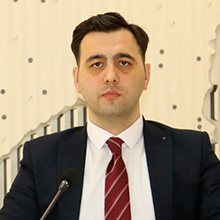 By Ayaz MUSEYIBOV, Head of Department, Center for Analysis and Communication of Economic Reforms of the Republic of Azerbaijan
By Ayaz MUSEYIBOV, Head of Department, Center for Analysis and Communication of Economic Reforms of the Republic of Azerbaijan
After implementing a number of trans-Eurasian energy and logistics mega-projects, such as the Baku–Tbilisi–Ceyhan oil pipeline, Southern Gas Corridor and Trans-Caspian International Transportation Route, Azerbaijan has also strategically committed itself to policies designed to turn the South Caucasus country into a regional digital hub. This initiative has already secured buy in from several countries and major companies in the IT space. Notably, this past April, Italy’s largest internet service provider and one of the world’s leading operators, Sparkle, and Azerbaijan’s top wholesale telecommunications operator, AzerTelecom, signed a memorandum of understanding on cooperation within the framework of the Digital Silk Way project (not to be confused with China’s Digital Silk Road), aimed at creating a digital telecommunications corridor connecting Europe and Asia via Azerbaijan. READ MORE
- September 2, 2022 08:45AM
The Rising Strategic Role of Azerbaijan in Euro-Asian Economic Relations  By Ayaz MUSEYIBOV, Head of Department, Center for Analysis and Communication of Economic Reforms of the Republic of Azerbaijan
By Ayaz MUSEYIBOV, Head of Department, Center for Analysis and Communication of Economic Reforms of the Republic of Azerbaijan
Currently, energy and trade routes security is one of the major considerations at the global level. In the wake of the recent global events, the importance of energy resources is more likely to become a dominant matter which the global economy tremendously needs.
Energy supply to Europe, particularly to South and South-Eastern Europe, depends on only one source. However, the European Commission is accelerating the economic diversification processes beginning with the gas routes in order to reduce the economic dependency. Hence, the EU has already held various talks with energy players such as Egypt, Qatar, the United States, South Korea, Nigeria, and Azerbaijan to increase natural gas supplies in the case of a gas crisis. READ MORE
The Strategy of Actions: A Guideline for Uzbek Reforms 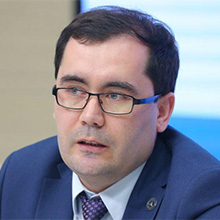 By Eldor TULYAKOV, Executive Director, Development Strategy Centre By Eldor TULYAKOV, Executive Director, Development Strategy Centre
Furkat YUNUSOV, Head of Department, Development Strategy Centre
Four years ago, Uzbekistan launched reforms critical to the development of its economic sphere. Based on the Strategy of Actions, the document responsible for outlining the priorities for the country’s growth for the period of 2017-2021, as a metric we have arrived at initial finding, with several indicators demonstrating progress, most notably the areas of public administration, social and civic institutions, mass-media, economic advances, among others. The past four years have evidenced precise results and demonstrated more advanced methods to take these priority areas forward. READ MORE
Status Report: The Ukrainian Navy By Eugene Kogan, Tbilisi-based defence and security expert
Undoubtedly, the Russian annexation of Crimea in March 2014 caused serious damage to the Ukrainian Naval Forces. About 70 per cent of the fleet has been lost and what remained is in poor shape and in need of repairs.
The resulting conflict in the Eastern part of Ukraine drew attention, energy and resources away from the difficult state of the Ukrainian Navy towards the urgent needs of the army and air force. The perilous state of the economy has further decreased financial support for the Navy’s needs. In addition, a debate on the conceptual vision of the Navy divided the expert community and top naval personnel for about 15 months. READ MORE
Oil Market Collapse Damages the Iraqi Economy 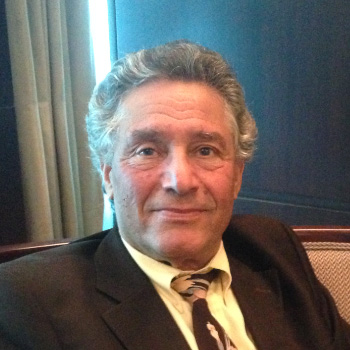 By Ahmed Mousa Jiyad, Development Consultancy & Research, Norway By Ahmed Mousa Jiyad, Development Consultancy & Research, Norway
The collapse of the global oil market is undoubtedly unprecedented in its timing, magnitude, spread and devastating impacts across the globe. A strange and unpredicted association of a few, but major, factors had contributed to the current threat, causing much uncertainty and vulnerability on national and global levels. The revised "OPEC+" production cut agreed on 12 April prompted initial minor improvement in oil price, but there remains very many serious concerns that such reduction is much below what is needed to bring stability to and balances a saturated global oil market. READ MORE
- September 30, 2020 11:10AM
Stakeholder Consultation Round Two - Exploring the Role of Economic Initiatives as Peace Building Tools in the Nagorno-Karabakh Context [UPDATED]
The second stakeholder consultation round in EGF's ongoing Nagorno-Karabakh research took place on 06-08 July 2014 in Berlin (Germany), including introduction of a post-conflict scenario building workshop. More than 30 experts from Armenia, Azerbaijan, and international partner NGOs and institutions attended this highly successful event, held in a constructive atmosphere of exchange. It has been the first step towards exploring the idea of a roadmap leading towards an economically integrated South Caucasus, and created a platform for exchange of information between Armenian and Azerbaijani experts. During the post-conflict scenario building workshop, regional participants simulated the negotiation of a roadmap for the implementation of economic components of a peace agreement built upon the Madrid principles, encompassing joint economic measures in areas such as energy, transport, trade, rehabilitation of the territories affected by the conflict, and the return of IDPs to their homeland.
Please click here for the summary of conclusions.
Please click here to see the agenda of the seminar, and participants’ biographies.
Please click here to see the EGF presentation on this research.
Exploring the Role of Economic Initiatives as Peace Building Tools in the Nagorno-Karabakh Context
A highly successful roundtable discussion on Exploring the Role of Economic Initiatives as Peace Building Tools in the Nagorno-Karabakh Context took place on the 27th of March, 2014, at the European Parliament. The event was organized by the European Geopolitical Forum and international NGO partners, and was attended by more than 40 experts from the South Caucasus region and Brussels-based think tanks and international organizations who engaged in discussion in a constructive, informal ‘atmosphere of exchange’. The roundtable focused constructive energies on discussing a common future in an economically integrated South Caucasus, as a way to build mutual trust aimed at helping to overcome the current stalemate within the political and security negotiations. Please click here for the summary of conclusions of the event. READ MORE.
The Myths and Realities of Vladimir Putin’s Eurasian Economic Union  By George Niculescu, By George Niculescu,
Head of Research, The European Geopolitical Forum
Why use the OSCE to take a “jibe” at you know who ?
When on 6 December 2012, in the margins of the OSCE ministerial meeting in Dublin, the US state secretary Ms. Hillary Clinton warned about "a new effort by oppressive governments to "re-Sovietize" much of Eastern Europe and Central Asia" , many observers of Eurasian affairs might have wondered why she lashed out at Russia just before meeting foreign minister Sergey Lavrov to discuss the Syrian crisis. READ MORE
|
|